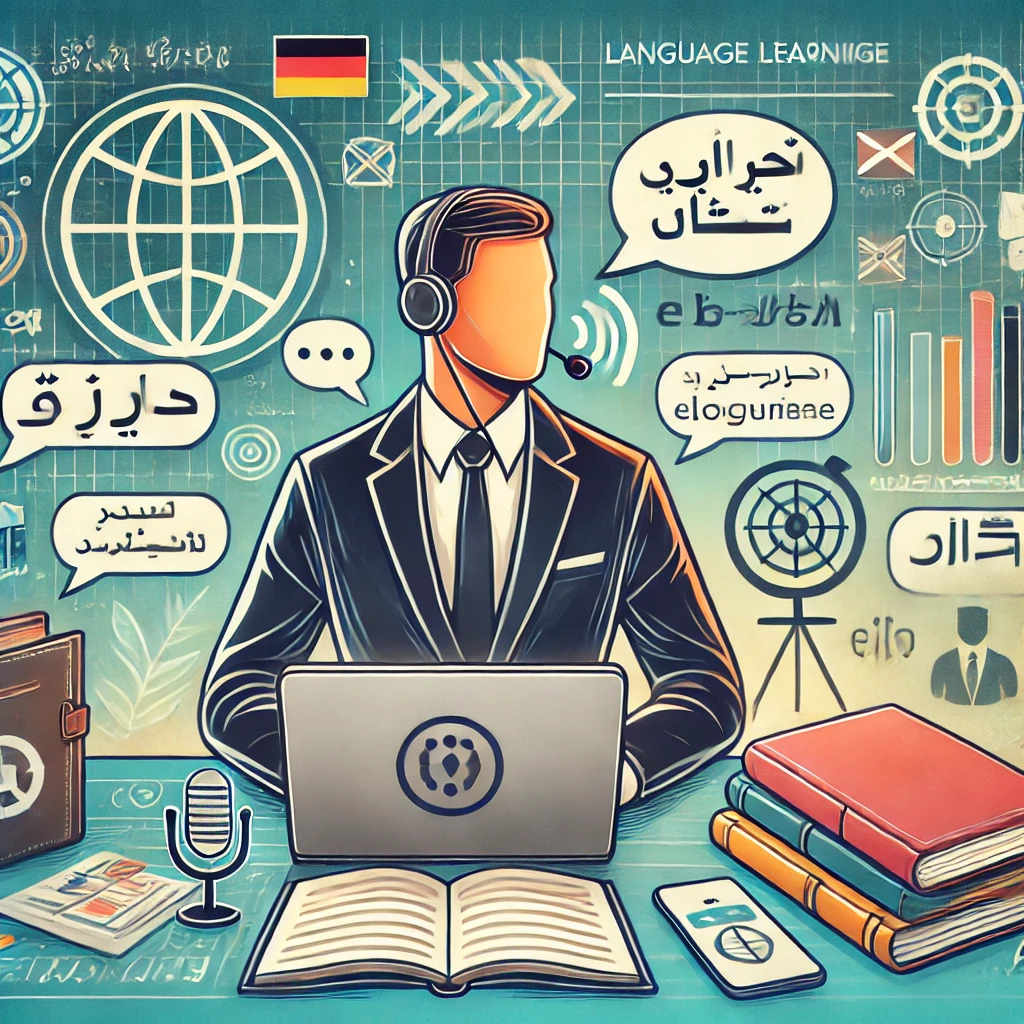Learning a new language can open doors to exciting career opportunities, especially if you’re preparing for a job interview that requires proficiency in a foreign language. But how can you learn effectively and efficiently to meet professional expectations? In this blog, we explore proven techniques to learn a new language, tailored for job interview success.
1. Set a Clear Goal and Focus on Relevant Language Skills
When preparing for a job interview, your goal is not to become fluent overnight but to master the language skills relevant to the interview process and your professional field. Focus on the following:
- Speaking and Listening: Most interviews involve verbal communication, so prioritize speaking confidently and understanding questions.
- Job-Specific Vocabulary: Learn key terminology, phrases, and expressions related to your industry.
- Professional Etiquette: Understand cultural nuances and formal language to present yourself appropriately.
Use tools like Anki or Quizlet to create flashcards with job-specific vocabulary and practice them daily.
2. Immerse Yourself Through Real-Life Scenarios
Language immersion is a powerful way to accelerate learning. You can simulate real-life scenarios to prepare for job interviews effectively:
- Mock Interviews: Record yourself answering common interview questions in the target language. Use platforms like iTalki or Preply to practice with native-speaking tutors.
- Roleplay Exercises: Partner with a friend or language coach to roleplay professional conversations.
- Media Immersion: Listen to industry-related podcasts, watch YouTube videos, or read professional blogs in your target language to improve listening comprehension and learn relevant terminology.
3. Use Technology to Your Advantage
Modern technology has made language learning more accessible than ever. Leverage these tools to stay on track:
- Language Learning Apps: Duolingo, Babbel, or Memrise are excellent for daily vocabulary and grammar practice.
- Speech Recognition Software: Apps like Speechling and ELSA Speak analyze your pronunciation and help you speak more naturally.
- AI-Based Tutors: Tools like ChatGPT can help you practice interview responses, improve grammar, and generate sample answers.
Combine these tools with real-world practice to strengthen your skills effectively.
4. Focus on Pronunciation and Intonation
Your pronunciation can significantly impact how confidently you perform in a job interview. Poor pronunciation might hinder your communication even if your grammar and vocabulary are solid. Here are some strategies:
- Shadowing Technique: Repeat audio from native speakers, mimicking their pronunciation, rhythm, and intonation.
- Record and Compare: Record yourself speaking and compare it to native examples.
- Minimal Pairs Practice: Focus on differentiating sounds that are challenging in your target language.
Tools like Forvo or YouGlish help you listen to word pronunciations in context.
5. Practice Common Interview Questions in the Target Language
Job interviews often follow predictable formats. Learn and practice common questions such as:
- “Tell me about yourself.”
- “Why are you interested in this position?”
- “What are your strengths and weaknesses?”
Write down your answers, memorize key phrases, and refine them with a language tutor or AI tools to sound polished and professional.
6. Adopt the ‘Think in the Language’ Mindset
Thinking directly in your target language rather than translating can improve fluency and confidence. Here’s how:
- Internal Monologue: Narrate your daily activities in the target language.
- Describe Your Surroundings: Practice describing objects, events, and ideas without switching back to your native language.
- Quick Decisions: Respond to simple prompts or questions quickly to build reflexive thinking.
This mindset shift is particularly valuable for interviews, where quick, natural responses matter.
7. Engage with Language Communities
Surrounding yourself with people who speak the language boosts confidence and provides real-time feedback.
- Join Professional Groups: Participate in LinkedIn forums or Slack communities relevant to your industry but in the target language.
- Language Meetups: Platforms like Meetup and Tandem connect you with native speakers and fellow learners.
- Online Forums: Engage in discussions on platforms like Reddit or Discord to practice writing and critical thinking in the language.
8. Track Your Progress and Stay Consistent
Consistency is key when learning a new language. Break your learning into manageable steps and track your progress:
- Set a daily or weekly goal (e.g., “Learn 10 new words” or “Practice speaking for 15 minutes”).
- Use habit trackers or apps like Beeminder to keep yourself accountable.
- Reward yourself for milestones to stay motivated.
Final Thoughts
Learning a new language for a job interview is both challenging and rewarding. By setting clear goals, immersing yourself in the language, and practicing with intention, you can significantly improve your communication skills in a short amount of time. Remember, confidence comes with practice, so embrace every opportunity to speak, listen, and learn.
Good luck with your language-learning journey, and ace that interview!
Have you prepared for a job interview in a foreign language? Share your tips and experiences in the comments below!

